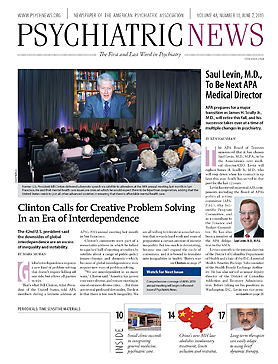A large population-based study has found a three-fold risk of developing autism spectrum disorder in children who mothers used an antidepressant during pregnancy.
The study was headed by Dheeraj Rai, Ph.D., a clinical lecturer at the University of Bristol in England. The results were published April 19 in the British Medical Journal.
The study included 18,524 children in Stockholm, Sweden, whose ages ranged up to 17. Of these children, 1,679 had an autism spectrum disorder with or without intellectual disability, and the remaining children served as age- and gender-matched controls.
Information on whether the children’s mother had been depressed during pregnancy was available from inpatient and outpatient psychiatric records, and information on whether the mothers had used antidepressants during pregnancy was available from interviews with the mothers when they were, on average, 10 weeks pregnant.
The researchers then assessed whether there was an association between antidepressant use during pregnancy and autism spectrum disorder in the offspring, taking possibly confounding factors such as maternal age, family income, educational level, occupational level of either parent, and maternal smoking during pregnancy into consideration.
Women who had used antidepressants during pregnancy were three times more likely to have a child who developed autism spectrum disorder without intellectual disability than those who had not used antidepressants during pregnancy. Moreover, the association held whether the women had used an SSRI or a non-SSRI antidepressant. However, there was no evidence of a link between maternal use of antidepressants during pregnancy and autism spectrum disorder with intellectual disability.
Autism Experts Cautious About Findings
“The most important take-home message is that there is nothing in this study…that shows any causative relationship between the use of antidepressants and the development of autism,” Louis Kraus, M.D., a professor of psychiatry at Rush University and an autism expert, emphasized during an interview with Psychiatric News. In short, it was a retrospective study, and as the case with all retrospective studies, it’s “difficult to fully ascertain what’s what and to untangle what’s what.”
For example, it’s possible that some of the women who used antidepressants during pregnancy had autistic characteristics “that were simply not documented,” Kraus noted. As a result, their children might have been at a high genetic risk for autism “completely unrelated to any of the women’s [antidepressant use].”
Cause Remains a Mystery
“At this time, the field does not know what causes the majority of cases of autism spectrum disorder,” Christopher McDougle, M.D., a professor of autism at Harvard Medical School, told Psychiatric News. “Genetic causes have been identified that may explain 10 to 20 percent of cases. Various environmental factors are being investigated, possibly in relation to a genetic vulnerability. This paper puts forth data suggesting that antidepressant use during pregnancy might be an additional environmental factor to consider. But as the investigators point out, an association does not imply causality. It may be that the biology underlying the mother’s depression, rather than the medication, may have an impact on the developing brain of the baby.”
The authors of the study concur on this point. As they write in their paper, “Antidepressant use may be a marker of the severest forms of depression during pregnancy.”
“From a clinical prospective, one must consider the consequences of allowing depression to go untreated in the pregnant mother,” McDougle continued. “It’s possible, if not probable, that the biological milieu of untreated depression is more toxic than that associated with the use of an antidepressant. Furthermore, the psychological effects of untreated depression undoubtedly would affect the pregnant mother’s ability to bond with and care for a new baby.”
“What will be important in the future, if possible, is to look at things prospectively, where there can be a more accurate assessment of the parents and not simply looking at retrospective charts or diagnoses….,” Kraus said, adding that he is unaware of such a study that is in process.
The study was funded by the Swedish Research Council, Stockholm County Council, Swedish Council for Working Life and Social Research, and through the Swedish regional agreement on medical training and clinical research. ■
